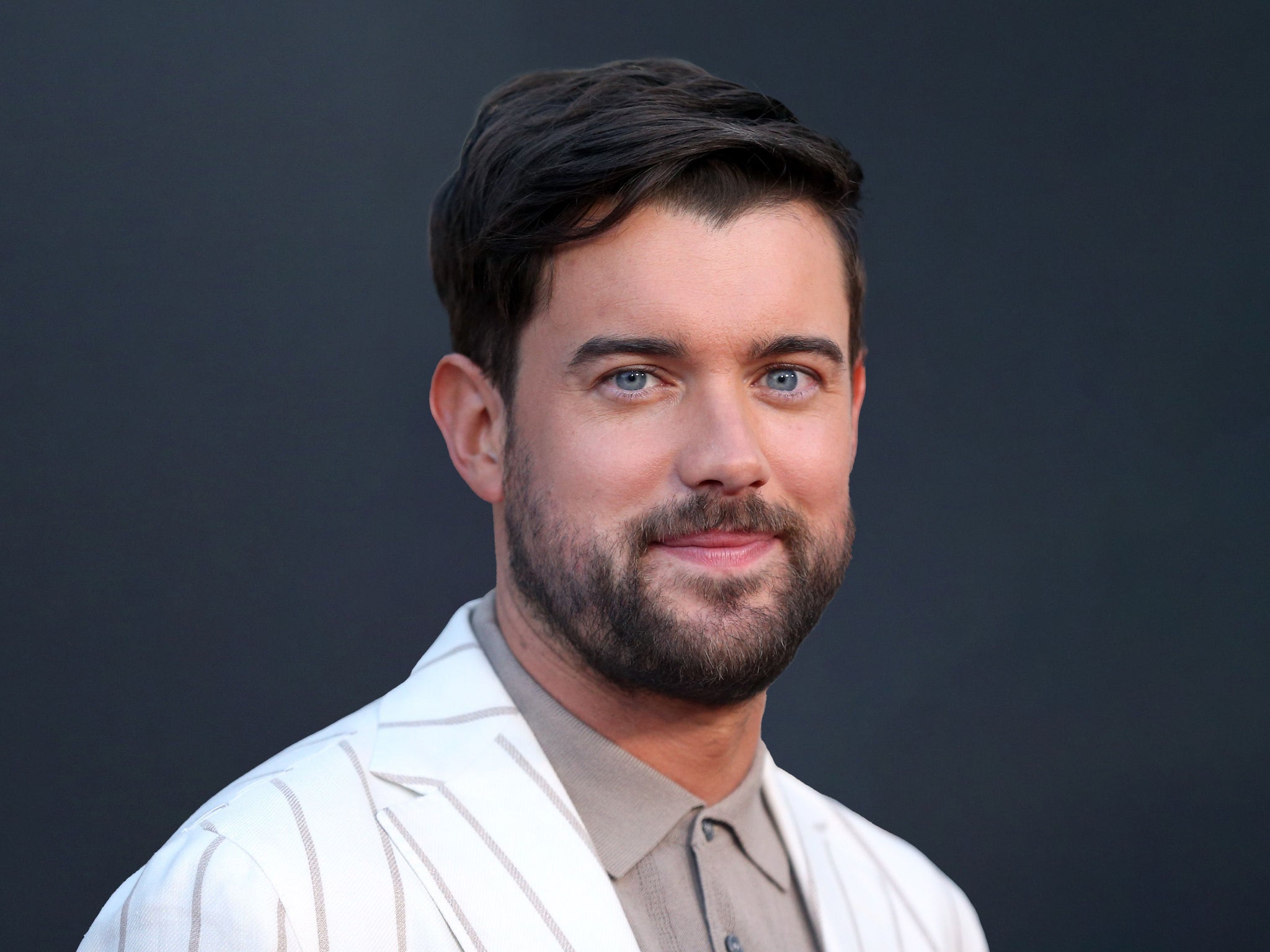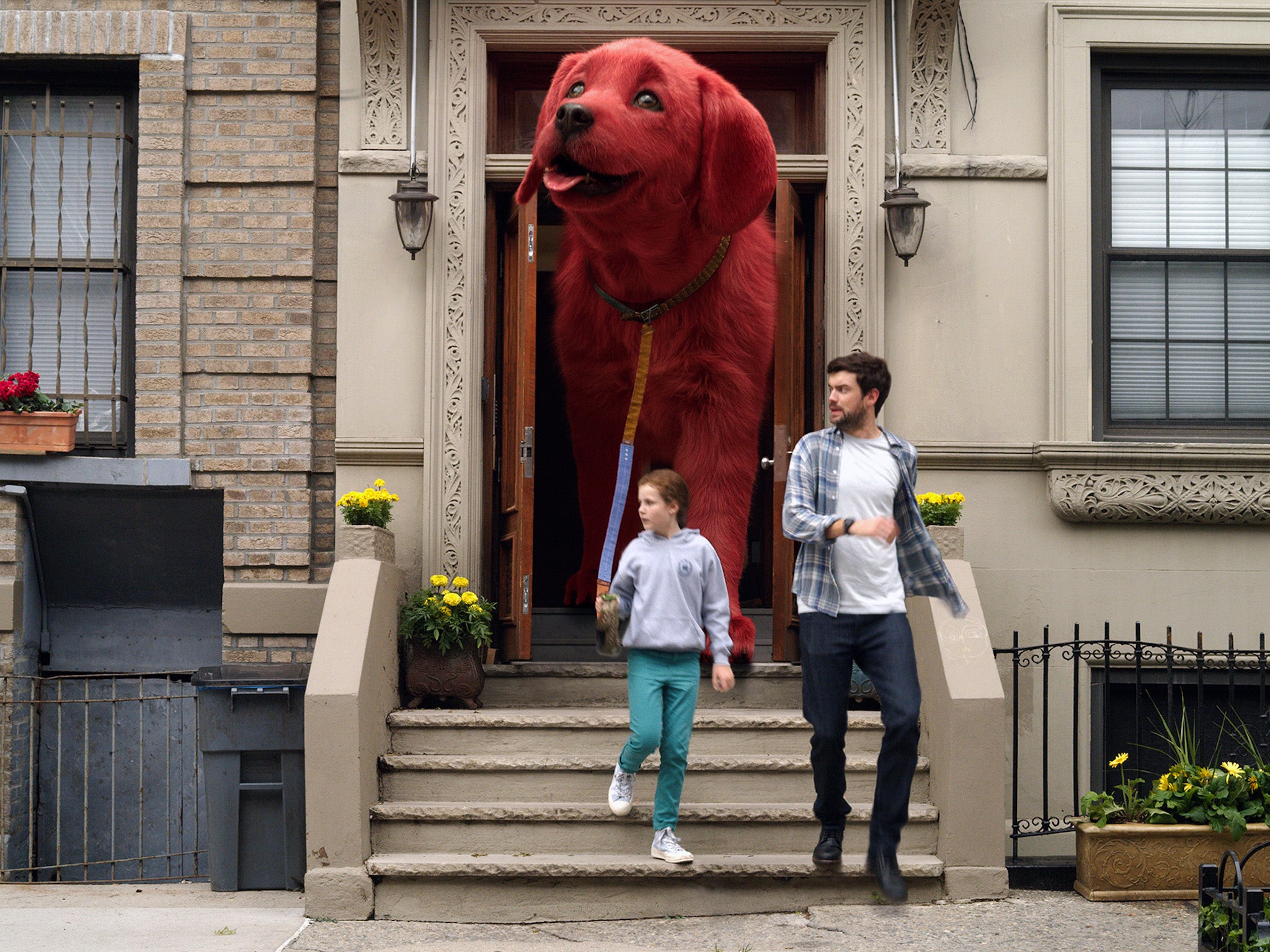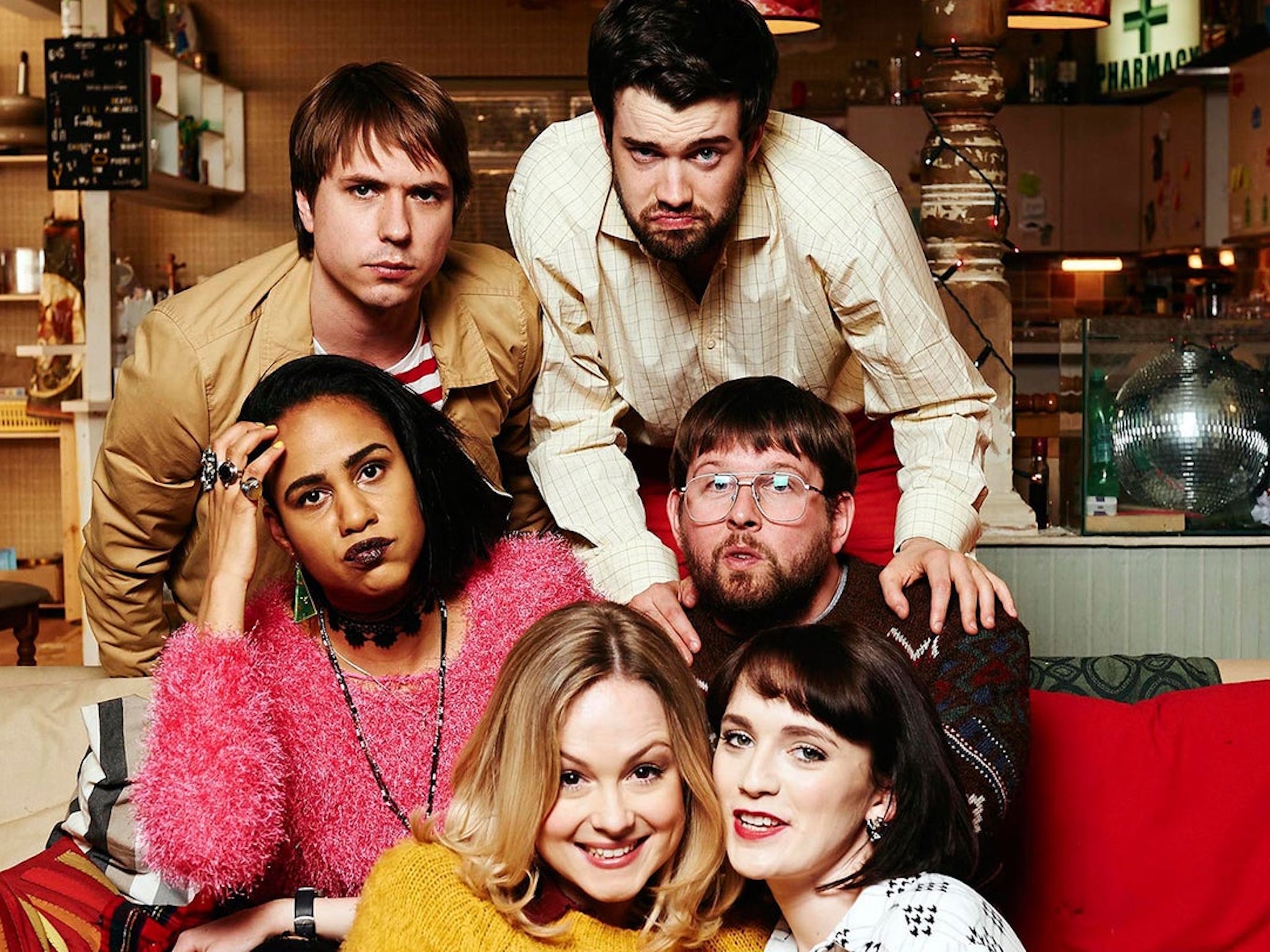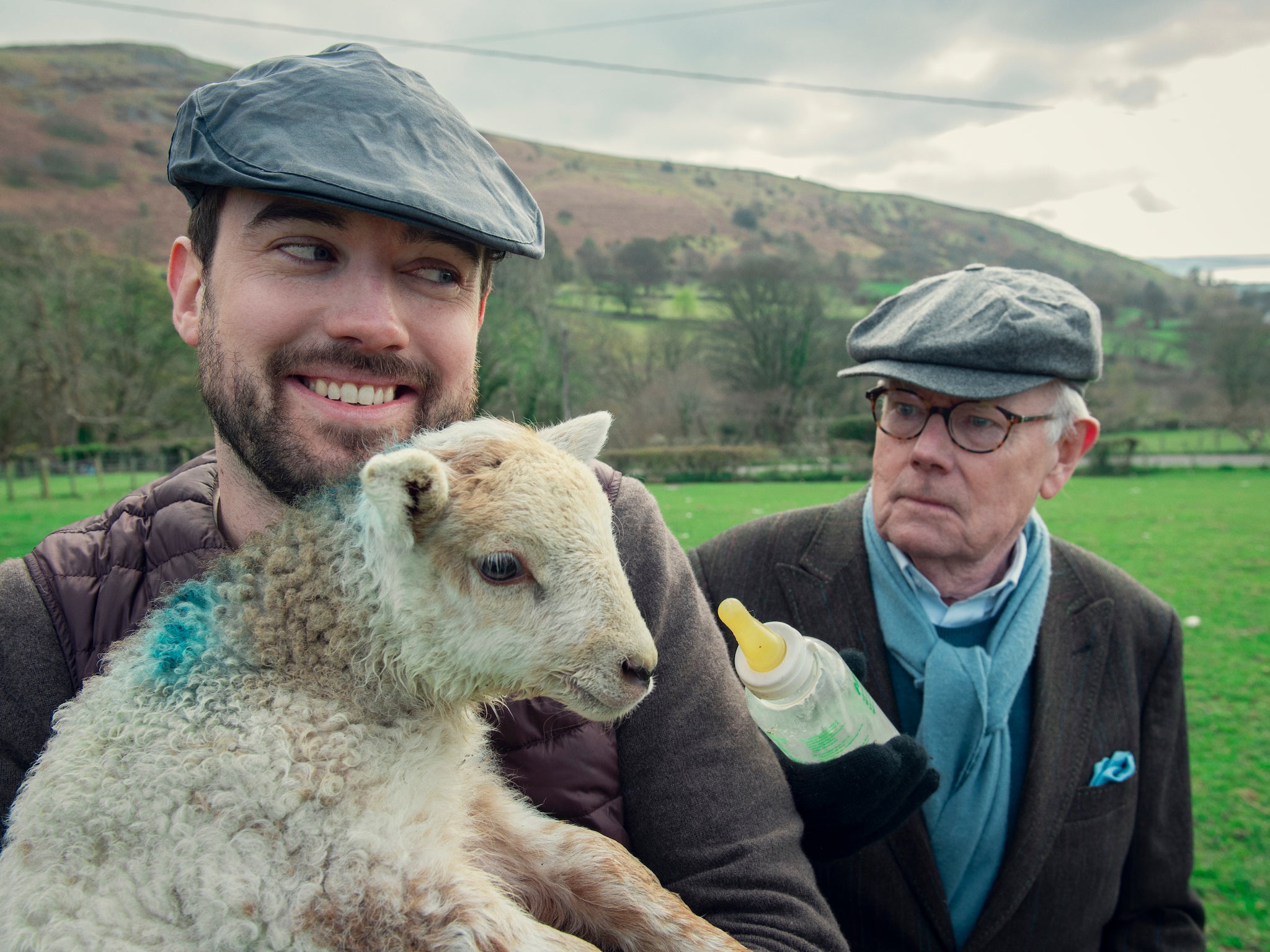Jack Whitehall: ‘I’ve mined posh for the best part of a decade’
The comedian turned actor is setting his sights on the US with a part in upcoming film ‘Clifford the Big Red Dog’. Is he leaving his public schoolboy persona behind? He’s trying to, he tells Annabel Nugent


Your support helps us to tell the story
From reproductive rights to climate change to Big Tech, The Independent is on the ground when the story is developing. Whether it's investigating the financials of Elon Musk's pro-Trump PAC or producing our latest documentary, 'The A Word', which shines a light on the American women fighting for reproductive rights, we know how important it is to parse out the facts from the messaging.
At such a critical moment in US history, we need reporters on the ground. Your donation allows us to keep sending journalists to speak to both sides of the story.
The Independent is trusted by Americans across the entire political spectrum. And unlike many other quality news outlets, we choose not to lock Americans out of our reporting and analysis with paywalls. We believe quality journalism should be available to everyone, paid for by those who can afford it.
Your support makes all the difference.Jack Whitehall didn’t set out to make posh, public schoolboys his cachet. He certainly didn’t intend for his IMDb page to read like a Tory Christmas party guestlist; names like Barnaby, Pennyfeather, Hugo and Alfie. That’s just how it played out. But now, 13 years into a career where he’s ping-ponged from potty-mouthed millennial stand-up to TV comedy and now Hollywood, he’s thinking it might be time to hang up the polo mallet. “I mined that posh bit for the best part of a decade,” he says. “Maybe I’ve exhausted it. It’s just the same joke over and over again.” The way he’s talking – sounding wearier than any 33-year-old ought to be – seems like there’s no “maybe” about it.
Over Zoom, Whitehall is sat next to a gigantic poster of a grinning puppy with a New York City manhole cover in its mouth like a ginormous frisbee. The comedian looks tiny in comparison. His legs are uncomfortably crossed on the type of stool that necessitates perching as opposed to sitting. The adorable puppy poster – in promotion of his latest release Clifford the Big Red Dog – feels incongruous with Whitehall’s comic persona. He tends to be crude, lunging headlong for a joke about anal bleaching or bad sex, still reminiscent of the television character who whisked him off on this trajectory: JP.
In 2011, Whitehall was an art history dropout and budding comic appearing on various panel shows. Then he was cast in Fresh Meat, a Channel 4 series about a group of freshers at university, as Jonathan Pemberley, trust fund baby and bona fide douchebag. JP, as he was known, was a plum role for any comedian wishing to enter acting; he was awfully awful and completely hilarious. JP said things like: “I’ll probably end up being prime minister or something one day. I don’t want to be. It’s just that kind of shit just happens to guys like me.” The show celebrated its 10th anniversary earlier this year. “It was very hard to do anything after that because the scripts were never quite as good as a Sam Bain and Jesse Armstong script,” Whitehall says. (After all, that pair also wrote Peep Show and Armstrong has gone on to create the most buzzy show of the decade with Succession.)
One way of getting around that problem was by writing his own show. And so Whitehall created Bad Education, the hit BBC comedy series in which he played Alfie Wickers (a JP-styled character, only slightly older and a teacher in a state school). Just like Fresh Meat, viewers ate it up. By his early twenties, Whitehall had become the go-to posh divvy of choice. It made sense; the actor himself went to Marlborough College. Onscreen, his look – when greased up by copious dollops of hair gel and paired with the correct shade of reddy-pink trousers – can come off both obnoxious and endearing. In a similar vein to the stripper with the heart of gold, Whitehall’s w*****s are almost always likeable. He lends them humanity and grounds his performance in unlikely pathos. It’s a quality that’s more obviously on display in his latest release, the fun-for-the-whole-family film Clifford the Big Red Dog, in which he plays Uncle Casey, lovable buffoon and cousin to a little girl whose ginger-haired pup grows unbelievably large.
Although now it feels like it was inevitable, the whole posho angle wasn’t always the plan. When Whitehall was starting out on the comedy circuit as a teenager, he hid his privilege with a mockney accent and affected slang. “I thought that I might get a slightly easier time from the audience at a comedy club in Oldham if I didn’t sound like one of the Conservative Party,” he recalls. “I thought maybe I could avoid getting a pint thrown at my head.”
In 2008, the comedian landed a gig presenting on Big Brother’s Big Mouth where he attempted to impersonate the show’s previous presenter, Russell Brand. “I didn’t know who I was so I borrowed my personality from different people I saw on TV,” says Whitehall. Over the next decade he navigated through different “incarnations”, as Whitehall calls them, including one where he says he tried to imitate Jack Dee, to wind up somewhere closer to who he actually is. Admittedly, that person is posh. But Whitehall is about more than that, or would like to be. “I will remain really, really posh for the rest of my life,” he muses, “but there might be other aspects of myself that I could harness. I might be able to say something a bit more interesting than punchlines about Waitrose.” I remind him that those punchlines were often very funny. “Yeah.” He sighs. “I just want to mix it up eventually.”

Mixing it up is more difficult than you’d think. Whitehall’s Netflix series Travels with My Father was hugely successful – a travelogue in which he jaunts around the world with his theatrical-agent father who is exceedingly more plummy than himself – and was his biggest introduction yet to American audiences who just love an English toff. Time and time again, Whitehall will tell himself to choose something different, something challenging. “Like playing a serial killer in some dark brooding drama,” he suggests.
But then a script will come along for a buddy comedy about a manchild and he’s immediately smitten. He can’t help himself. Uncle Casey, he says, is “the same part with an American accent,” he deadpans. “It’s Alfie Wickers but he’s American. And Jungle Cruise was different because I didn’t have a beard.” These are the times that Whitehall comes across most like his public persona, when he is cracking one-liners to a willing audience. His voice sparks up, as if suddenly plugged into a power outlet. He stretches vowels and changes pitch for dramatic effect.
Whitehall demonstrates this sense of self-awareness regularly. The kind that easily bats away flattery and excuses he makes for himself. It’s most obvious when he’s talking about how he sees himself received by others, and it’s what led him to stop hosting the Brits Awards after four years. “After that first time, I was conscious of not outstaying my welcome,” he says. “I wanted to make sure people still enjoyed seeing me do it.” Whitehall adds that Olly Murs and Niall Horan – his common targets of choice – can rest easy this time around.

Watch Apple TV+ free for 7 days
New subscribers only. £8.99/mo. after free trial. Plan auto-renews until cancelled

Watch Apple TV+ free for 7 days
New subscribers only. £8.99/mo. after free trial. Plan auto-renews until cancelled
He’s decided to step back from the mic for similar reasons. “The problem with stand-up is that you get through a lot of your life experience very quickly,” he says. Mining memories for material is nothing new for comedians, and over his career Whitehall has made a screeching, smoking spectacle by burning through the rubber of his life. But the tyres have worn out. “At the end of my last tour, I thought it was definitely time to take a little break,” he says, and “to not have that moment the minute after you’ve said something and someone’s laughed to think, ‘Oh I need to make sure I remember that because I could say it again in a professional capacity’.”

He’s onto bigger things now anyway – the big screen. Clifford the Big Red Dog and Disney’s Jungle Cruise (in which he starred opposite Dwayne Johnson and Emily Blunt) are his biggest US releases to date. Crossing the Atlantic is a well-worn journey for UK comedians, but it can also be a treacherous one. Look at James Corden. Whitehall’s friend and former collaborator on A League of Their Own found immense success across the pond with a self-titled late night show and his many blockbuster billings. Too many blockbuster billings, some would argue. Now, the once-beloved Corden routinely finds himself at the centre of online petitions to keep him out of films. Speaking about his pal’s fate, Whitehall gestures to the tall-poppy syndrome he sees as a problem in Britain; the wish to brutally lay into successful people. “I’m always hyperaware of that and hyperaware of how Twitter can be a volatile place and that you have to tread carefully. Everyday there’s a new villain, which is why I wake up every day hoping that it’s not going to be me.”
There might be other aspects of myself that I could harness. I might be able to say something a bit more interesting than punchlines about Waitrose.
There is something daunting about the time in which Whitehall came up as a teenage comic. In a Venn diagram of social acceptability, he sits in the middle of when it was supposedly OK to joke about anything and the time that people started recording everything on mobile phones. Is he scared that those less PG jokes will resurface to bite him? “I definitely feel that fear a bit,” he says. “There was a period of time where people could get away with anything they wanted and then there was a bit of a movement to censor that and redefine what you could and couldn’t joke about. And now we’ve had this over-calibration where we’ve found ourselves in a place in time where possibly what we’re allowed to say is being over-policed.”

He predicts that a balance will eventually be found. “In the next decade or so, we’ll probably end up with a better situation where people are more thoughtful about what they say but at the same time, it doesn’t feel like free speech is too overly restricted.” Admittedly, Whitehall says, “I’m an optimist.”
He’s less optimistic about his chances of breaking out from under the heap of his past smutty material. “In some moments I look at the actors that I admire and the trajectory of their careers and I think to myself wow, look at Tom Hanks, that is the perfect career.” Hanks also started out making family movies like Turner and Hooch and Splash before he progressed into Oscar winners, and Whitehall is happy to be venturing down a similar path. “But before I get ahead of myself I remember that Tom Hanks never did Late ’n’ Live at the Edinburgh Festival so there’s no landmines out in the ether,” he laughs. “That always helps me check myself and reminds me that the wheels will probably come off at some point because I did so much late night comedy. And I probably went for the jugular on more than one occasion.” Nowadays, he’s aiming for the heart.
‘Clifford the Big Red Dog’ is available to watch in cinemas from 10 December






Join our commenting forum
Join thought-provoking conversations, follow other Independent readers and see their replies
Comments